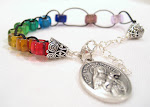.jpg)
The seven deadly sins still provide a good part of our news and entertainment, although few people could give an accurate list of the top seven! In fact, many would struggle to explain the idea of sin at all.
For Christians sin offends God and turns us away from love. True love never causes us to sin, although disordered love of self lies behind many sins, especially sins of the flesh.
Sin harms the sinner, often harms other people and violates their rights. Murder, violence and stealing are clear examples, but sins are not necessarily a crime or a disease.
The notion of sin comes from the Bible, presupposes that we have real personal freedom to choose good or evil, and is essential for a happy and safe community.
A society which rejected the idea of sin would be a jungle, where the strong oppress the weak and define what is right and wrong. History shows, even our personal histories, that those who believe love is of paramount importance also acknowledge attacks on love.
Sins are more than breaking rules, because people are hurt.
The seven deadly sins are sometimes called capital sins because they lead to other sins, into habits or vices.
The most common list comes from St Gregory the Great, a famous pope at the end of the sixth century. He places pride first, followed by greediness, envy, anger, lust, gluttony and sloth or bitterness.
The Italian writer Dante Alighieri grouped the seven sins according to the way they offended against love. A perverted love produces pride, envy and anger. Insufficient love leads to sloth or laziness, while excessive love of earthly goods results in greed, gluttony and lust.
Not only did Dante understand human nature, but he possessed a well formed Catholic conscience.
Habits of sin also damage our judgment so we do not see things clearly and become blind to the rights of others.
Our moral sense can become blunted, even extinguished in some areas. Think of people who worked happily in concentration camps.
The seven deadly sins not only damage our judgment, but can even come close to capturing our free will entirely. Think of those addicted to drugs, alcohol or pornography.
On the other hand no situation is hopeless. God’s forgiveness is real and life-giving and many have returned from the brink, small step by small step.
Christianity is about love, the opposite of sin, but it is cowardice to duck this issue.
Some Christians dismiss talk on sin as negative, refuse to classify sins and are content to claim that God loves them and is not interested in “bad stuff”. It is always a danger sign if we believe we are not sinners!
To acknowledge the reality of the seven deadly sins helps us to know ourselves. And self knowledge always means knowledge of sin and usually leads to knowledge of God.
+ George Cardinal Pell's Comment
Archbishop of Sydney












.jpg)









.png)








No comments:
Post a Comment